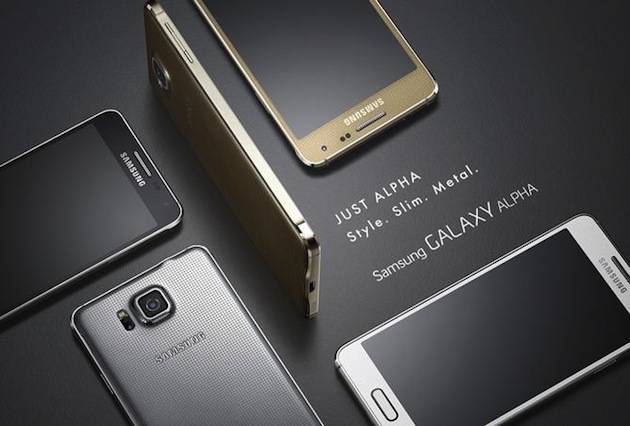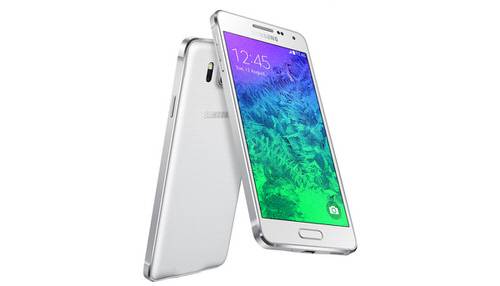In an attempt to stop its financial bleed, Samsung pulled the trigger on a brand-new metallic Galaxy Alpha smartphone today. And the debut looks like a change in course in both product design and marketing.
The long-awaited, much-leaked Android device silences critics of the company’s plasticky design ethos with an all-new flat metal banding. Overall, the device itself is flatter and lighter than, say, the Galaxy S5. Combined with a soft touch, leatherette backing (not unlike that other Galaxy phone or the Galaxy Note 3 phablet), the handset looks like a premium gadget.
This is Samsung’s “fresh approach,” if you can call it that. Others might call the banding and flatter profile rather iPhonesque.
No matter. Beauty is more than skin deep, and here the insides are … well, not all that beautiful. The Alpha’s hardware specifications don’t quite live up to its premium promise. Although the device comes with a beefy “octa-core” processor that can do a lot of heavy lifting—think fast multitasking, gaming and even mobile video editing—the other specs come up short compared to, say, the Galaxy S5.

The 4.7-inch screen is smaller than the S5’s 5.2-inch display, the 12 megapixel camera also clocks in under the previous Galaxy’s 16 megapixels, and unlike the incumbent flagship, the 32 GB internal storage is a fixed limit. There’s no microSD card slot in the phone.
But Samsung hasn’t changed everything. The tech company loves to experiment with new features, and on the Alpha, that shows up as an all-new fingerprint scanner and ultra-power-saving mode.
All that makes this new smartphone appear rather uneven—and its maker seems to knows it. Uncharacteristically, Samsung eschewed a big splashy press event to quietly unveil this device. Subtlety has never been the company’s strong suit, which leaves people wondering what it really has up its sleeve. Perhaps bigger changes are in the works in that other smartphone the company has been testing.

Whatever they are, they need to be major. The tech company posted weak Q2 earnings, with a 25% dip in operating profits. Samsung, citing falling price cuts in the smartphone market, expressed doubts about rallying in the second half of this year:
Samsung expects to see its sales of mobile devices increase with the rollout of flagship products and new models, but profitability may suffer due to a heated race over price and product specifications.
So when the Galaxy Alpha launches in September—maybe in the United States, maybe not—it probably won’t stop the hemorrhage. We’ll have to see if the second handset can. But the odds are rather slim, mostly because the company itself doesn’t even seem to believe it.
Photos courtesy of Samsung.

















